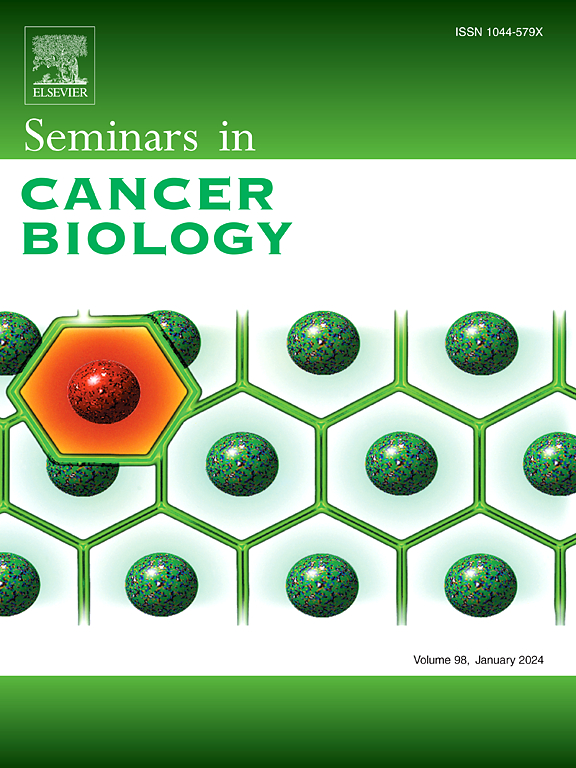在新兴疗法时代,脂蛋白(a)与癌症的复杂相互作用。
IF 15.7
1区 医学
Q1 ONCOLOGY
引用次数: 0
摘要
在过去的几十年里,Lp(a)的生物学特性引起了越来越多的关注,因为它们可能与动脉粥样硬化性心血管疾病以外的广泛临床疾病有关。迄今为止,Lp(a)与癌症之间是否存在致病性相互作用仍不清楚。的确,实验研究主要显示了Lp(a)对癌症的保护作用,而临床研究结果却高度矛盾。尽管如此,在当前对这种脂蛋白重新产生科学兴趣的时代,证实Lp(a)代谢与癌症之间的任何联系可能对其翻译意义具有重大影响。的确,血浆Lp(a)水平常规评估的实验室检测方法越来越多,可以作为癌症诊断和预后分层的额外工具。此外,抗Lp(a)疗法的混乱发展,如果证实了促癌的Lp(a)活性,可能会对癌症的自然历史及其药理管理产生影响。本文综述了目前关于Lp(a)与癌症之间关系的知识,以及它在肿瘤学领域可能产生的影响。本文章由计算机程序翻译,如有差异,请以英文原文为准。
The complex interplay of lipoprotein(a) and cancer in the era of emerging therapeutics
In the last decades, the biological properties of Lp(a) have attracted increasing attention for their possible involvement in a wide range of clinical conditions other than atherosclerotic cardiovascular disease. To date, whether a pathogenic interplay may exist between Lp(a) and cancer remains unclear. Indeed, experimental studies mainly show a protective effect of Lp(a) toward cancer, while results of clinical studies are highly contradictory. Nonetheless, the confirmation of any link between Lp(a) metabolism and cancer may be highly impactful for its translational implications in the current era of a renewed scientific interest in this lipoprotein. Indeed, the increasing availability of laboratory assays for the routine assessment of plasma Lp(a) levels could be proposed as an additional tool for cancer diagnosis and prognostic stratification. In addition, the tumultuous development of anti-Lp(a) therapeutics, if a pro-cancerogenic Lp(a) activity will be confirmed, could have an impact on the natural history of cancer and on its pharmacological management. This review resumes current knowledge on the relationship between Lp(a) and cancer as well as on its possible impact on the oncological field.
求助全文
通过发布文献求助,成功后即可免费获取论文全文。
去求助
来源期刊

Seminars in cancer biology
医学-肿瘤学
CiteScore
26.80
自引率
4.10%
发文量
347
审稿时长
15.1 weeks
期刊介绍:
Seminars in Cancer Biology (YSCBI) is a specialized review journal that focuses on the field of molecular oncology. Its primary objective is to keep scientists up-to-date with the latest developments in this field.
The journal adopts a thematic approach, dedicating each issue to an important topic of interest to cancer biologists. These topics cover a range of research areas, including the underlying genetic and molecular causes of cellular transformation and cancer, as well as the molecular basis of potential therapies.
To ensure the highest quality and expertise, every issue is supervised by a guest editor or editors who are internationally recognized experts in the respective field. Each issue features approximately eight to twelve authoritative invited reviews that cover various aspects of the chosen subject area.
The ultimate goal of each issue of YSCBI is to offer a cohesive, easily comprehensible, and engaging overview of the selected topic. The journal strives to provide scientists with a coordinated and lively examination of the latest developments in the field of molecular oncology.
 求助内容:
求助内容: 应助结果提醒方式:
应助结果提醒方式:


